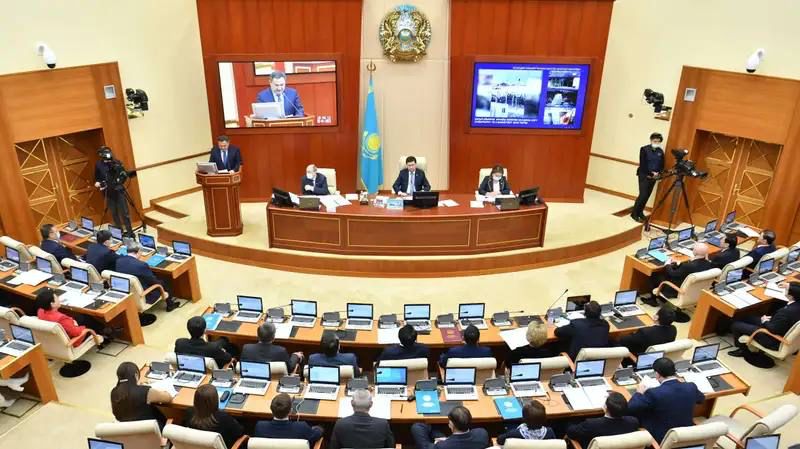Strange priorities of the deputies in Kazakhstan. Recently, members of Kazakhstan parliament proposed canceling the procedure of regulatory impact analysis in the tax and customs spheres. The idea was rejected. Now they have decided to do the same in the gambling industry. Instead of creating an open, transparent, and understandable legislative environment for investors in the country, they are forming a typical autocratic model.
Does the president know?
To remind, Regulatory Impact Analysis (RIA) is a mandatory procedure of open discussion with businesses and public organizations on all new norms and amendments that the government and parliament want to introduce into legislation. Widely used in developed democracies, this tool prevents anyone from pushing through harmful norms for business and society without discussion. In Kazakhstan, it was introduced as part of presidential reforms and has already proven highly effective in reviewing several important decisions.
Recently, a group of deputies made an unexpected proposal: to cancel the RIA procedure in tax and customs regulation. The idea is to avoid discussing innovations in tax and customs regulation with entrepreneurs and society. The business community was shocked. Before business associations could question the members of parliament, they proposed a similar idea for the gambling business.
If today a transparent procedure for analyzing and coordinating legislative innovations is canceled in one industry, what prevents them from doing the same in other industries? Who will be next? The oil and gas sector, food industry, trade, and services? Investors and economic experts actively ask this question.
Speaking of the consequences of such steps, it is worth starting with the main point: canceling a progressive procedure, proven and long-used in developed countries, is being attempted not without reason, but clearly in someone’s interests. Otherwise, it is difficult to explain the idea, especially since it goes against the president’s policy. Kassym-Jomart Tokayev constantly speaks to international investors about the stability of the investment climate and complete transparency of all regulatory decisions. Moreover, this is fundamentally anti-democratic practice: canceling the RIA procedure will allow government bodies to push through anything they want through parliament without discussion.
Strange things are happening in Kazakhstan. On the one hand, principles of openness and accountability of the authorities are declared to the whole world, democratic reforms are carried out, transparent procedures are introduced, including RIA. These procedures and tools, through which businesses and society have real opportunities to discuss enacted laws, express their positions, and thereby protect themselves from ill-considered or unprofessional decisions, reflect the practices of developed countries that Kazakhstan aspires to join. On the other hand, members of Parliament, possibly influenced by some lobby, is consistently rolling back and canceling these progressive norms.
Certainly, business needs to be regulated – both gambling and any other. But why do our elected officials not want it to be done in an internationally accepted – democratic, transparent, progressive format? Why are they striving for closedness and, consequently, the impossibility of influencing business and society on the decisions being made? As one businessman said in a conversation, if open discussion of innovations on the «Open NPA» platform, as proposed by deputies, is canceled, it will be regulation not in the style of progressive OECD standards but in the style of classical autocracies – reminiscent of the command-planned economy of the USSR.
And Kazakhstan is a member of the OECD and it aims to be among the top 30 developed countries in the world. Also, Kazakhstan strives for higher positions in the doing business ranking, where one of the most important criteria is the democratic conduct of business. In other words, formally, we aim to follow the most advanced OECD practices – but what is the reality?
In developed states today, no one questions the necessity of public assessment of all proposed legislative innovations and amendments: it is crucial to understand their potential impact on business and society in advance. «The introduction of Regulatory Impact Analysis (RIA) is part of the official political recommendations of the OECD, and today, 32 out of 35 OECD countries include RIA in their legal frameworks,» noted European economists N. Dayton-Smith, M. Erbacchi, and K. Kaufmann in their research. The World Bank’s report on «Global Indicators of Regulatory Governance: Regulatory Impact Assessment Practices Worldwide» also acknowledges it as a long-tested tool. «Already in the 1970s, RIA was actively promoted by international organizations such as the World Bank. This approach allows governments to ensure that the laws and rules they develop and implement are of high quality, effective, transparent, and accountable,» according to WB experts.
In the context of what is happening, the question arises whether President Kassym-Zhomart Tokayev is aware of what is being done behind his back. While he tirelessly speaks to international investors about a comfortable investment climate, stable and transparent regulation, and the country’s progress in reforms and civil society development in Kazakhstan, members of parliament are taking diametrically opposite steps, significantly worsening business climate and directly undermining civil-legal institutions. This, mildly speaking, may surprise our international partners.
On the strange priorities of the legislator
If we look more broadly at the topic of the professionalism of the current Parliament composition, the question arises: what important legislative projects have been adopted recently?
They strictly «regulated» electric scooters and introduced separate requirements for their management, although they, strictly speaking, do not differ from bicycles — neither in speed nor in size. (Now many bicycles also have electric motors). They proposed to ban vapes, while in developed countries, on the contrary, health authorities promote them as a less harmful alternative to cigarettes. They seriously discussed banning the advertising of baursaks – yes, imagine, promoting our national dish turns out to be prohibited. Additionally, regulators or government itself could engage in lobbying efforts or employ persuasive techniques to sway the opinions of parliament members, highlighting perceived benefits of the proposed regulation while downplaying the necessity of a rigorous regulatory impact analysis.
Is this the professionalism of a legislator? Is this the progressive practice of democratic institutions in the country?
Many observers have noticed that deputies, in promoting such controversial initiatives, often use not only unverified but blatantly fake data. For example, they constantly talk about the prevalence of ludomania (the pathological addiction of people to gambling) in the country. It has reached the point that at one session, this topic was even included in the list of national security issues, despite the absence of accurate statistics on ludomania in the country. According to the authorized body — the Ministry of Tourism and Sports of the Republic of Kazakhstan — only 300,000 residents (less than half a percent of the adult population) regularly and actively place bets or buy lottery tickets. How many of them are pathologically addicted to gambling? Five percent, ten, thirty? There is no accurate statistics. But, in any case, compared to several developed countries where the proportion of actively gambling residents reaches 50% of the adult population and more (for example, the United Kingdom, Italy, Canada), the share of the gambling population in Kazakhstan is a drop in the ocean. However, some deputies at the highest level for more than two years «fed» everyone with fake statistics, claiming without reference to the source that there are supposedly 350,000 ludomaniacs in the country. Later, it turned out that this statement was fake. Such strange activity of some Parliament members on this particular topic raises a logical question: who and for what purpose persistently promotes the issue of ludomania, who needs all this?
And this is just one example of the strange selectivity of our Parliament members. Sometimes it’s about bets, roulette, and lotteries being seen as problem number one. Then scooters. Then vapes. Then baursaks. Are there no other, more important issues in the country? Is there really nothing else for the legislator to do at a time when there are many genuinely acute social and economic problems? Such as the quality of education, for example. Or domestic violence (recently, the Ministry of Internal Affairs of Kazakhstan reported about 300,000 (!) applications received for domestic abuse in a year). Or the issue of unemployment in some regions, where the population periodically stages protests. Or the infamous strikes of workers in service companies in the oil and gas sector. Or the tragedy at the Kostenko mine in Karaganda. The list can go on for a long time.
Do these issues have less significance than the problems of ludomania, scooters, vapes, or unsubstantiated prohibitions on implementing RIA in certain industries and sectors?
Kazakhstan needs quality laws, which means we need a professional parliament. It’s time to address this issue with the leadership of the parliament and also with the members of Senat who silently observe the strange actions of their colleagues in the lower chamber. Because it is embarrassing in front of the global community.









